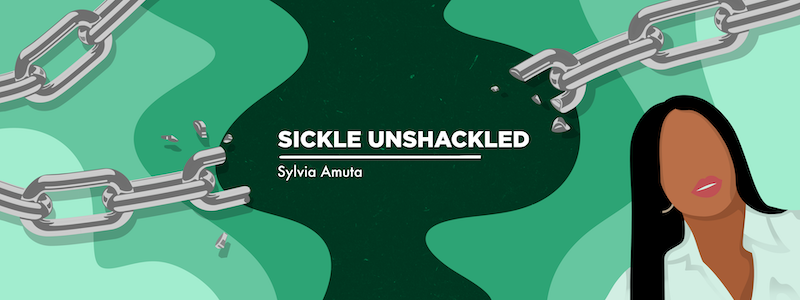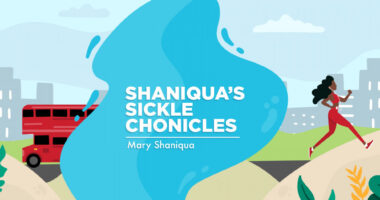I’m learning to embrace both natural and pharmaceutical medicine
Finding harmony among various types of remedies may prove beneficial

My mother-in-law is a firm believer in nature’s medications. Her faith in the healing power of plants stems from the lush soils of her Nigerian town, where she grows her food and medicine. Her way of living reflects her ideals, with the majority of her food coming straight from her farm.
Her visits are typically accompanied by her bag full of tales and herbal advice. Our discussions about natural medicine versus pharmaceutical therapies are as common as morning coffee, and just as energizing.
She once held up a ginger root as if it were a magic wand, proclaiming it to be a cure-all for everything from colds to sadness. “This,” she exclaimed, “is nature’s antibiotic, antiviral, and anti-sadness all rolled into one!” I responded with a raised eyebrow and a snarky, lighthearted remark.
Another time, she showed up with a weird green paste that she said might relieve joint discomfort. She described how warriors in her community used it to relieve pain. I said with a smirk, “Unless those warriors were fighting arthritis, I’ll stick to ibuprofen for now.”
Despite our joking, these exchanges frequently conclude with a smart compromise, a combination of her herbal drinks and my prescription medication. It’s a witty dance between old-world custom and modern science, with each step revealing more about the other’s world.
Finding harmony between nature and science
So I was looking forward to our normal banter when she came to visit from her village on a particular fateful day. Even though, as a physician, I’m a firm believer in modern medicine, my mother-in-law’s presence always promises a fun challenge to my views. However, she arrived at a time when my niece Ada — whom I care for due to her sickle cell disease — was showing indications of a cold, including a runny nose.
Our lighthearted debate over natural versus pharmaceutical medicine was cut short by an unexpected need for me to travel, leaving Ada in the care of my mother-in-law and husband. When I returned home, I wasn’t prepared for what had happened.
My mother-in-law had a smug smile on her face when she revealed that Ada’s sniffles had escalated to a fever and cough while I was gone. She had gone to her trusty herbal mixtures instead of going for the antipyretics, or fever reducers, and cough syrup neatly stacked in the medical cabinet. Ada was on the mend, her health restored by nothing more than a smoothie of roots from my mother-in-law’s hometown.
My first instinct was to chuckle, a reflex borne of scientific expertise and skepticism. However, underneath the laughter was a growing interest. Is it possible that I was too hasty to discount the wisdom of generations who lived long before modern medicine?
This period of contemplation proved pivotal. As a result, I started doing research and kept a more open mind while sorting through facts and anecdotal evidence. The incorporation of my mother-in-law’s practices into our daily routine grew from a source of amusement to a source of genuine interest.
The abundant variety of her farm is reflected in the vibrant colors and aromas of the fresh fruit that now fills our kitchen. Our meals have come to include more organic, healthy options.
I acknowledge that perhaps there is a harmony yet to be completely realized in the delicate dance between nature and science. Now, I encourage people to approach their health with an open mind regarding the symphony of treatments and cures available in our world. In the search for well-being, especially for caregivers of individuals dealing with chronic health challenges like sickle cell disease, our exploration must be as limitless as the love we have for the people in our care. The journey to recovery is a jigsaw puzzle, with each component worth scrutinizing with a careful yet caring eye.
Note: Sickle Cell Disease News is strictly a news and information website about the disease. It does not provide medical advice, diagnosis, or treatment. This content is not intended to be a substitute for professional medical advice, diagnosis, or treatment. Always seek the advice of your physician or other qualified health provider with any questions you may have regarding a medical condition. Never disregard professional medical advice or delay in seeking it because of something you have read on this website. The opinions expressed in this column are not those of Sickle Cell Disease News or its parent company, Bionews, and are intended to spark discussion about issues pertaining to sickle cell disease.







Jacqueline Medler
Thank you Dr Sylvia Amuta for your great observation of your mother-in-law's remedies. I to use a little of both natural and prescribed medicine. They both work for me but, I would prefer natural because of the side effects of the westerns medicines that effect you later on in your life. If you can please continue to research more of the natural medicines and report to this great website.
Thank you
Jacqueline Medler
A Sickle Cell Warrior
Shirley
This is 100% on point, the symphony between the two. I was 100% natural, but as I've gotten older, dealing with sickle cell as a senior has introduced more challenges. So I still use a lot of natural herbs and supplements, along with a healthy, fairly clean rainbow diet and appropriate exercises. Still, there are circumstances, like osteoporosis and several bone fractures, that challenge natural remedies. I still try to make natural approaches my priority, including acupuncture, breathwork, massage, and others when appropriate. Thanks so much for this great article that, in my opinion, provides a balanced perspective.
Dayo
(Healthy) Food is medicine! Sickle cell is associated with lower levels of vitamin E, vitamin D, magnesium, and omega 3s, so I take supplements and they help immensely (magnesium also helps with constipation caused by everything from ibuprofen to opioids). I also drink a lot of moringa tea and hibiscus tea, and make sure to eat extra protein, extra vegetables, and drink lots of water.